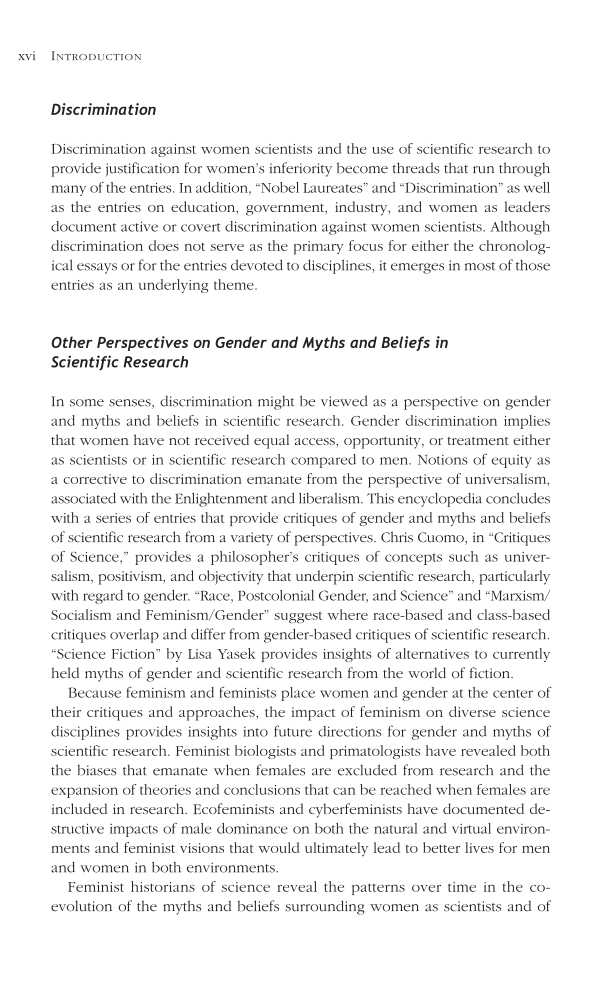Discrimination Discrimination against women scientists and the use of scientific research to provide justification for women’s inferiority become threads that run through many of the entries. In addition, “Nobel Laureates” and “Discrimination” as well as the entries on education, government, industry, and women as leaders document active or covert discrimination against women scientists. Although discrimination does not serve as the primary focus for either the chronolog- ical essays or for the entries devoted to disciplines, it emerges in most of those entries as an underlying theme. Other Perspectives on Gender and Myths and Beliefs in Scientific Research In some senses, discrimination might be viewed as a perspective on gender and myths and beliefs in scientific research. Gender discrimination implies that women have not received equal access, opportunity, or treatment either as scientists or in scientific research compared to men. Notions of equity as a corrective to discrimination emanate from the perspective of universalism, associated with the Enlightenment and liberalism. This encyclopedia concludes with a series of entries that provide critiques of gender and myths and beliefs of scientific research from a variety of perspectives. Chris Cuomo, in “Critiques of Science,” provides a philosopher’s critiques of concepts such as univer- salism, positivism, and objectivity that underpin scientific research, particularly with regard to gender. “Race, Postcolonial Gender, and Science” and “Marxism/ Socialism and Feminism/Gender” suggest where race-based and class-based critiques overlap and differ from gender-based critiques of scientific research. “Science Fiction” by Lisa Yasek provides insights of alternatives to currently held myths of gender and scientific research from the world of fiction. Because feminism and feminists place women and gender at the center of their critiques and approaches, the impact of feminism on diverse science disciplines provides insights into future directions for gender and myths of scientific research. Feminist biologists and primatologists have revealed both the biases that emanate when females are excluded from research and the expansion of theories and conclusions that can be reached when females are included in research. Ecofeminists and cyberfeminists have documented de- structive impacts of male dominance on both the natural and virtual environ- ments and feminist visions that would ultimately lead to better lives for men and women in both environments. Feminist historians of science reveal the patterns over time in the co- evolution of the myths and beliefs surrounding women as scientists and of xvi INTRODUCTION
Document Details My Account Print multiple pages
Print
You have printed 0 times in the last 24 hours.
Your print count will reset on at .
You may print 0 more time(s) before then.
You may print a maximum of 0 pages at a time.









































































































































































































































































































































































































































































































































